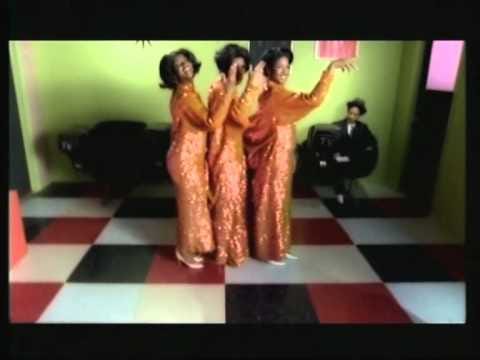Adrian Nicholas Matthews Thaws (aka Tricky) is a figure perhaps, for now anyway, stuck in a certain place and time–the late 1990s. He has had a productive career as a musician, but in many ways his fifteen minutes consisted of a few narrow years when trip hop was the coolest sound on the planet (it could still be just that, even if the kids may be unaware). Massive Attack, Portishead and Tricky (a member of Massive Attack initially). And in Tricky’s oeuvre “Christiansands” could be the pinnacle. There is just something so captivating and transgressive about his utterly destroyed voice burbling out of the morass of the world in counterpoint to Martina Topley-Bird’s haunting echo. Tricky defined a certain grainy trance aura, which sounds like an oxymoron–and it is. I had never heard anything like Tricky before and still haven’t.
Tricky’s album Pre-millenium Tension features an image of a naked woman in blue monochrome with a red and black globe situated between her legs. The album features songs both dire and apocalyptic (not difficult to pull off with Tricky’s gravelly voice), but with a beat. At first glance “Christiansands” seems cut and dry–it is not. The speaker is seemingly in a new relationship and offers thoughts on taking it slow, wearing defenses, and even writing a letter (how quaint for a song featuring a jabbed blues guitar loop). But he has questions, concerns. This is hard to believe considering Tricky’s contemporary soundscapes–reminiscent of Radiohead and Bjork of the same decade.
“Christiansands” builds up meaning via accretion–we learn more over each passing moment of the song. The refrain refers to the city of Christiansands (although the city sounds fictional you may know that it is an actual place in southern Norway with over 100,000 residents) and Hell-sinki (in Sweden) as clever and very diametrically opposed ideas. Both exist in Tricky’s world, as do Christians and devils, but this wordplay is actually not just for show–it goes right to the heart of what this song presents: the difference between words and reality. Words give us abstract ideas–”always” and “forever” are the examples cited by Tricky. But what do these proclamations really mean and how can they be achieved in the real, living world? This is a philosophical concept rooted in philosophers of language. One could easily write about signs and signifiers here. The devil is clearly in the gap between them.
For me Tricky’s “Christiansands” points to the many inherently slippery problems of language, especially as they pertain to human relationships and trust. While it is easy to use such sweeping, promising words, as Tricky suggests in his trippy, curlicue song, the actual meanings of these words always fall short–can’t help doing so, actually. “Forever,” for instance, is a fallacy. Nothing can exist forever, at least not in earthly terms. Even a love that lasts a lifetime is not “forever.” Because words inevitably disappoint, ever presenting himself as an outsider, Tricky offers to create his own language, maybe a language that avoids such empty promises. It’s a fascinating portrayal of aspirations towards the truth and an avoidance of disappointment. Who wants a heart riven with dissipating assurances? “When you talk, you make me cringe.” The cynicism of this song is biting: “You and me, what does that mean?” Nobody can be trusted; words are lies.
But Tricky saves the best for last. He has an actual solution. “It means we’ll manage, I’ll master your language. And in the meantime I’ll create my own.” As any student of a foreign language can tell you, it’s all about the reps–you add new words to your lexicon regularly. But until he is fluent in the words of this new love, he will create his own language. No need to tether his hopes to a potential disappointment. If you create your own language you create your own rules. You are in the driver’s seat. This seems like an inauspicious beginning to a relationship–and perhaps the speaker is simply protecting himself in defenses, as mentioned early in the song. He will not be vulnerable. He will control his fate based on lowered expectations. What will Tricky’s own language reap? That is the question. The song almost exists within this new language–something fresh was certainly afoot in “Christiansands.” It still sounds so.


